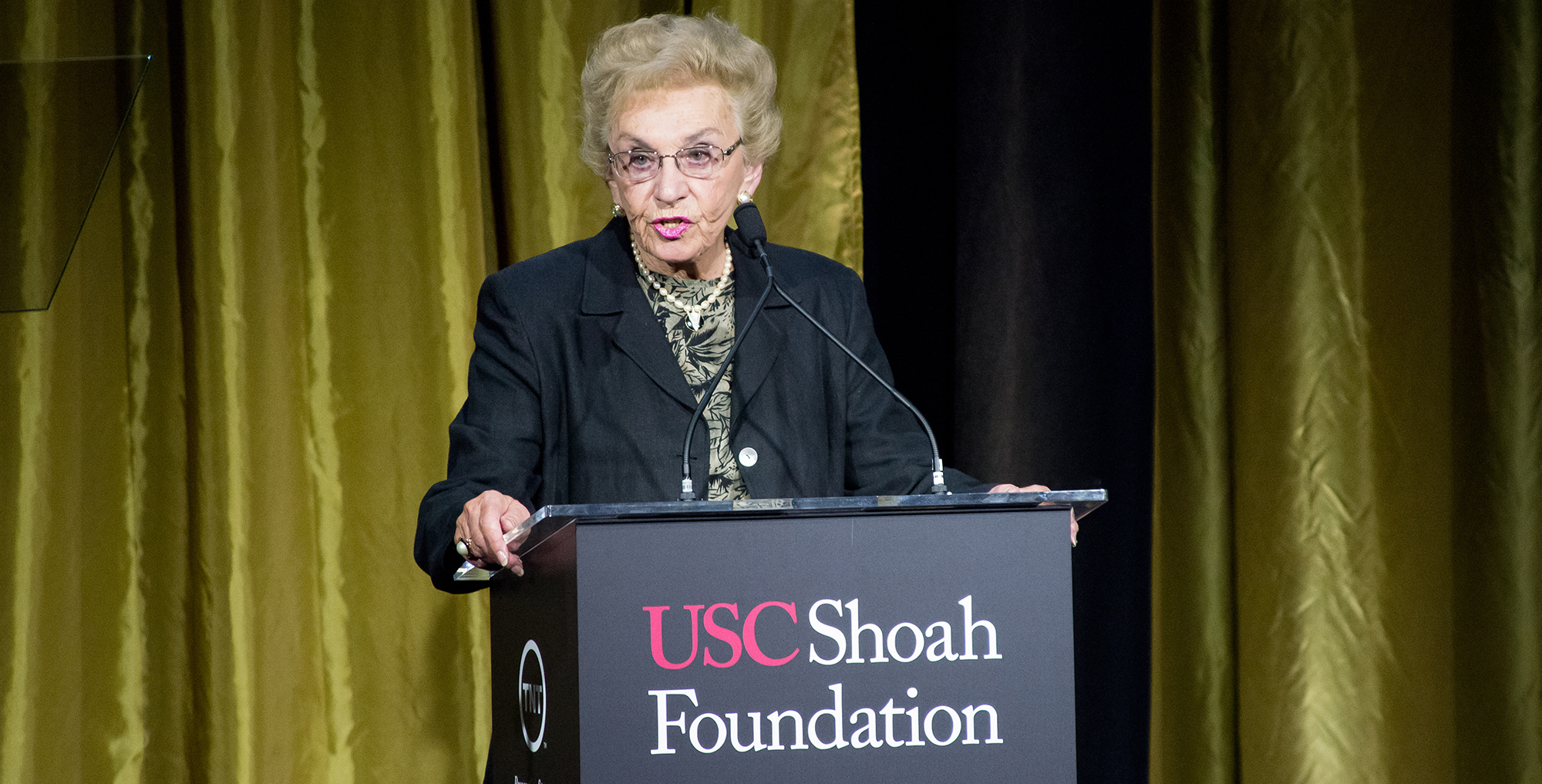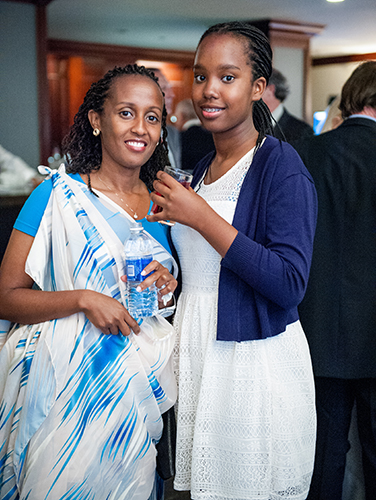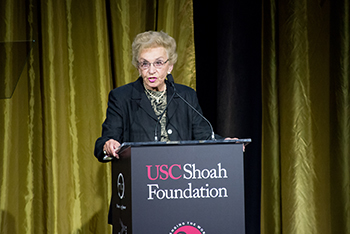Students to Host Genocide Survivor Poetry Event

 Edith Umugiraneza with her daughter at the 2014 Ambassadors for Humanity Gala
Edith Umugiraneza with her daughter at the 2014 Ambassadors for Humanity GalaDEFY (Defying Intolerance Through Education) is USC Shoah Foundation’s student organization. The group puts together on-campus events including documentary screenings, seminars and talks with survivors. Tuesday’s poetry reading is one of the event DEFY is hosting in honor of April’s Human Rights and Genocide Awareness Month.
“Having the opportunity to meet these women puts into perspective the utter importance of genocide education and awareness for young people today,” said USC senior Marina Kay, president of DEFY.
Biniaz herself was the one with the original idea for the event. After a trip to Auschwitz-Birkenau last year to commemorate the 70th anniversary of the liberation of the Nazi camp, Biniaz began writing poetry about her experiences as the youngest female survivor on Schindler’s List.
“Celina is in her eighties, but she is still a student and she wants to share this with people who might identify with her somehow,” Kay said of Biniaz, who has a master’s degree and continues to take college courses.
After Biniaz approached her, Kay asked Umugiraneza, who has previously written poetry, to participate as well.
“Edith is a mother to two beautiful girls and happily takes advantage of participating in every event that helps preserve the memory and stories of genocide victims, and at the same time uses her own story to make positive change,” Kay said.
The poem Umugiraneza will read, “God Made a Wonderful Mother,” is currently published on USC Shoah Foundation’s website. It is about her mother, who she lost during the 1994 Rwandan Tutsi Genocide, in which most of her family was killed.
 Celina Biniaz at the 2014 Ambassadors for Humanity Gala
Celina Biniaz at the 2014 Ambassadors for Humanity GalaKay believes the event will be both an opportunity for students to hear a more unique and artistic communication of painful experiences, as well as a chance to meet amazing women who are genocide survivors.
“I think poetry is a very profound way of expressing oneself, and to write poetry about your personal situation or past takes a great deal of self reflection,” she said. “In talking to these women, I’ve learned that writing has been a soothing way to cope with the past, and a creative way to share their story.”
“When Memories Unfold: Poetry After Genocide” will be held in Taper Hall of Humanities Room 301 from 4-6 p.m. on Tuesday.
Like this article? Get our e-newsletter.
Be the first to learn about new articles and personal stories like the one you've just read.